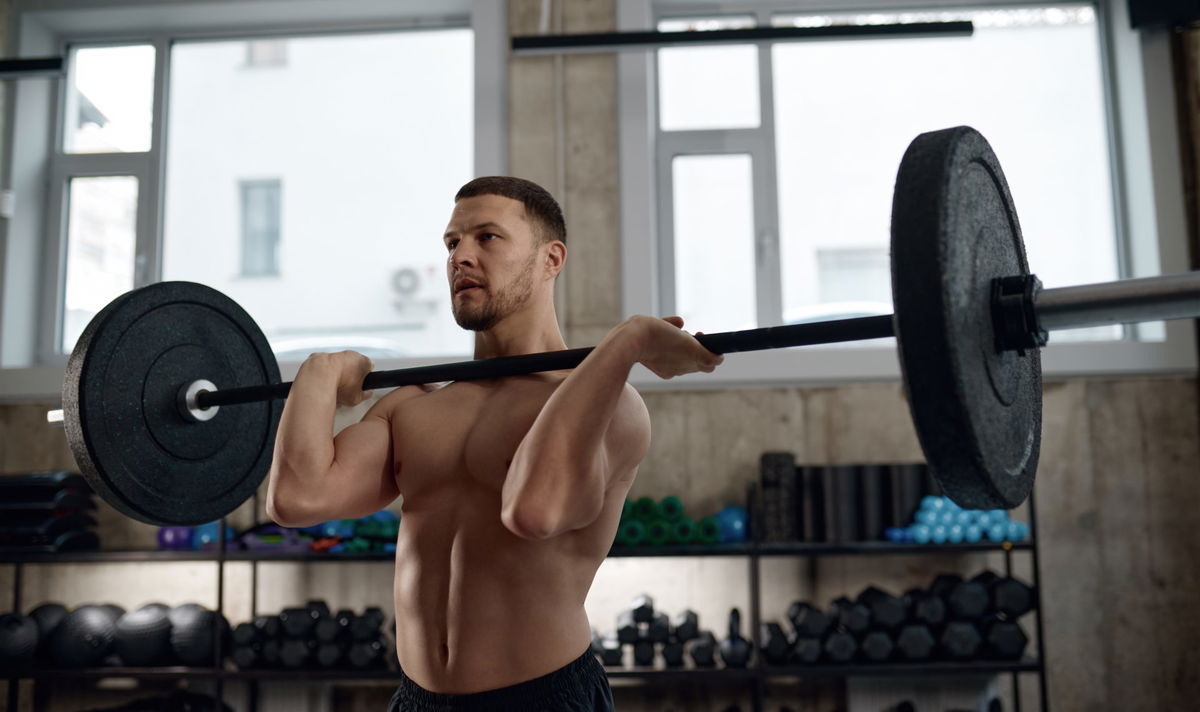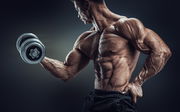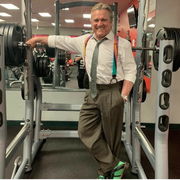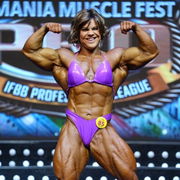
Imago
Muscular guy lifting barbell above head standing at gym, Muscular guy lifting barbell above head standing at gym. Young athlete under physical exertion using sports weight equipment during fitness workout, Muscular guy lifting barbell above head standing at gym. Young athlete under physical exertion using sports weight equipment during fitness workout, 11.03.2023, Copyright: xNomadSoulx Panthermedia33770147.jpg

Imago
Muscular guy lifting barbell above head standing at gym, Muscular guy lifting barbell above head standing at gym. Young athlete under physical exertion using sports weight equipment during fitness workout, Muscular guy lifting barbell above head standing at gym. Young athlete under physical exertion using sports weight equipment during fitness workout, 11.03.2023, Copyright: xNomadSoulx Panthermedia33770147.jpg
All of us are accustomed to celebrating our birthdays every year. However, have you ever wondered if there are other markers besides chronological age? If you have, the answer is yes, and the other marker we do not put on our birthday cake is our biological age. Biological age also has its own clock. There is more than one biological clock. Yet, our fitness levels affect them all in the same way.
Watch What’s Trending Now!
To understand how fitness levels affect our biological clocks, we must first understand the concept of biological age and different ways of measuring it. Our chronological clocks help us track how much time we’ve spent alive. However, our biological clocks tell us the true age of our bodies and the cells and genes that are their building blocks.
ADVERTISEMENT
The difference between chronological and biological age
Chronological age is as simple as keeping count of the years since the day an individual is born. While simple, it doesn’t give insights other than how long someone has been alive. On the other hand, biological age reveals the age of the body down to a cellular level. Someone might be in their seventies, but the right lifestyle and fitness-related choices might help them be far fitter than the average 70-year-old.

ADVERTISEMENT
Take Arnold Schwarzenegger for example. The seven-time Mr. Olympia is 76, yet he works out every day. Even at 76, Schwarzenegger does cardio and strength training. While we don’t know Arnie’s biological age, many 70-year-olds are unable to do a fraction of what the bodybuilding legend can. Hence, scientists have devices with different aging clocks to determine a person’s biological age.
ADVERTISEMENT
The hallmarks of aging and biological clocks
Most of the methods used to determine biological age have to do with taking a look at our genes. Most of the hallmarks of aging are genetic. Shrinking of telomeres is a hallmark of aging. As we age, the telomeres on the tips of our DNA shrink, leaving us susceptible to diseases. Fatigue in stem cell production is another hallmark of aging. Stem cells repair our bodies, and as we age, their production slows. Mitochondrial dysfunction is another hallmark of gain, and there are several more.
Top Stories
Who Is Angie Feliciano? The Woman Jay Cutler Has Been Engaged to for 7 Years

Why Tadalafil Is Used in Bodybuilding: Is It Actually Safe and Effective?

Retired for Almost Four Decades Now, Bodybuilding Legend Tom Platz Gives His Take on Modern Bodybuilding

“Is He Naked?”: Chris Bumstead Amazed by Bodybuilding Coach’s Impressive Physique in His 40s

Russian Bodybuilding Beast Aka She-Hulk Savagely Shrugs Off Haters Trying to Get Under Her Skin: “Don’t Write Crap to Other People”

Some of the most commonly used aging clocks look for these hallmark effects on our genes, DNA, and cells. The epigenetic clock determines biological age by finding methyl groups that attach to the DNA and silence a gene, preventing it from performing its function. Other clocks look at different markers, such as RNA. However, among the most accurate and easily accessible ones is the blood biochemical clock.
ADVERTISEMENT
Watch this story | Here’s bodybuilding legend Arnold Schwarzenegger’s exclusive training guide
The blood biochemical clock looks at multiple markers, such as HDL, LDL, blood sugar, etc. to calculate a person’s biological age. Hence, a simple blood test can help someone know their biological age and if their biological clock has overtaken their chronological one. However, the good news is that, unlike a person’s chronological clock, fitness affects and reverses the biological clock.
ADVERTISEMENT
How fitness reverses the biological clock
We can control how fast the hands of our biological clocks move to a large extent. Fitness and lifestyle choices directly impact our biological clocks. Making detrimental lifestyle choices like getting inadequate sleep, forming habits like smoking, and poor cardiovascular health speeds up the biological clock. Unfortunately, if the biological clock moves too far ahead, mortality increases.

ADVERTISEMENT
However, maintaining our fitness levels slows down the biological clock. In fact, high fitness levels even reverse a person’s biological clock by nearly a decade. Former Mr. Olympia Dorian Yates underwent a test to determine his biological age before turning 61. Yates discovered that thanks to his strict exercise regimen, his biological age was around 39.
Yates achieved such a favorable score because of his cardiovascular health. After retiring from bodybuilding, Yates has worked relentlessly to increase his VO2 max. Besides cardio, his fitness regimen also includes bodybuilding exercises. According to Insider Science, scientists have also found that high levels of fitness help our cells remain younger.
ADVERTISEMENT
Scientists studied the telomeres of over 5000 adults. They found that people who work out over 6 hours per week, like Arnold Schwarzenegger and Dorian Yates, had cells that were 9 years younger than those who got moderate (5 hours or less) to no exercise. Hence, fitness is an indispensable tool if we want to reverse our biological clocks.
ADVERTISEMENT
ADVERTISEMENT
ADVERTISEMENT

